While it is true that felines are more independent creatures and experience less issues with separation anxiety than their canine counterparts, it is common for housecats to experience some level of anxiety when their owners are away. Due to the 2020 COVID epidemic in particular, our furry felines became more accustomed to us being around the house all the time. In addition, cats find a high level of safety in sticking to their everyday schedules, and if a part of their schedule is different, such as their owners being away more often than usual, it can lead to destructive behaviors. Keep reading to learn what the signs of feline separation anxiety are and how to best help your cat overcome this emotion.
Signs of Separation Anxiety in your Cat
Separation anxiety is defined as a stress response a cat may experience when they are separated from a person or another pet that they are strongly bonded to. While cats may not express separation anxiety in obvious manner that dogs may, studies show that roughly 64% of housecats demonstrate a secure attachment to their owner and show signs of anxiety when away from them for too long. Symptoms of feline separation anxiety include the following:
- Destructive Behaviors: Whether scratching or biting, a cat may destroy household furniture or other various items as a way to spread their scent and vent emotions.
- Loud Vocalizations: Excessive meowing, yowling, or any other vocalizations to gain your attention is a common trait in cats experiencing separation anxiety.
- Excessive Grooming: When either on their own or when you’ve returned home, your cat may tend to overgroom as a self-soothing tactic.
- Urinating or Defecating in Undesirable Places: As being left alone for an elongated period of time may throw off their schedule, your cat may begin to act abnormally and refrain from using their litter box.
- Changes in Eating Habits: This could show through a host of different behaviors, such as eating too fast or slow, refraining from drinking water, or fasting altogether.
- Vomiting: Induced by stress, cats can experience upset stomachs when experiencing separation anxiety.
- Other Anxious Behaviors: Waiting by the door, hiding, hissing, or exhibiting any sort of undesirable anxious behaviors may be observed during times of high feline anxiety.
How to Help Your Cat with Separation Anxiety
Once concluded that your cat is indeed experiencing separation anxiety, learning how to help them with it can be a process of trial and error. Here are some of the best ways to help your furry friend overcome separation anxiety:
- Provide a Comfortable Home Environment: Before leaving, be sure to set up your home in a way that will best ensure your feline is content. Set out some toys, open the window, lay out blankets in areas where they can sleep, hide a secret stash of catnip for them to find, play a calming nature documentary on the tv, and overall ensure they have an environment ready to distract them from experiencing separation anxiety.
- Set Leaving Cues: We all have leaving cues before leaving the house, such as putting our shoes on, grabbing our keys and wallet, checking the stove, and so on. Your cat may begin to experience anxiety as soon as they observe you moving through these cues. Instead, as a way to calm your feline, try grabbing your keys, putting on your shoes, and leaving the home for a few minutes only to quickly return back home. This act can train your cat to not experience anxiety when noticing these leaving cues.
- Start With Short Abscesses: To demonstrate to your feline that there’s nothing to fear, try leaving your home for short periods at a time. This can show your cat that there’s nothing to fear when you’re not home. Over time, leave your house for longer and longer periods of time so that they can get used to being at home alone.
- Dr. Bill’s Feline Cognitive Support: Loaded with 36-essential ingredients that aid in the maintenance of healthy brain and nervous system functions, Dr. Bill’s Feline Cognitive Support may be just what your cat needs to overcome their separation anxiety.
Optimum Feline Nutrition to Overcome Separation Anxiety
Providing our cats with additional antioxidants and specialty ingredients to aid in the maintenance of normal brain function has been proven to slow the progress of, and even reverse, the signs of cognitive dysfunction. Dr. Bill’s Feline Cognitive Support provides proactive ingredients to support memory, mental focus, brain function, motor skills, and an enhanced understanding of their separation anxiety.
-
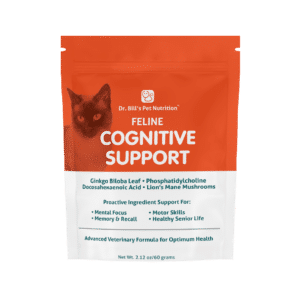 Feline Cognitive Support$30.95
Feline Cognitive Support$30.95

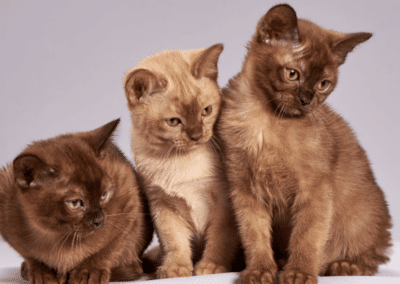
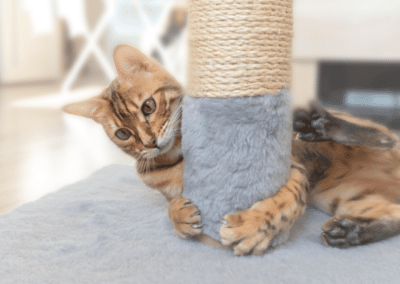
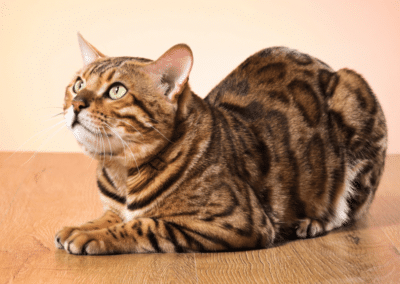
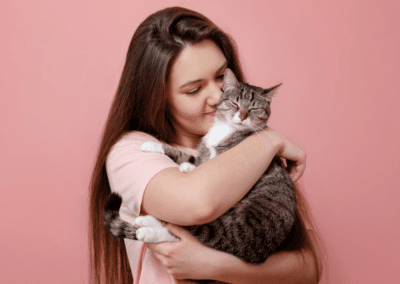
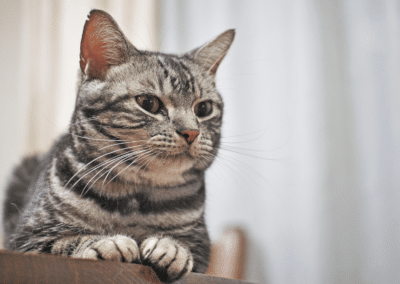
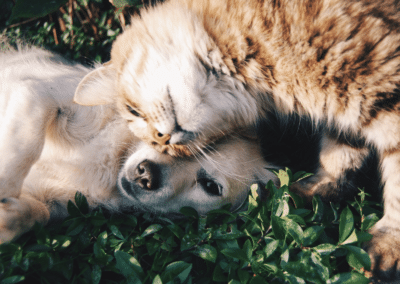

0 Comments